Sugar substitutes: What is the best alternative for sugar?
Since March 2015, the World Health Organisation has recommended reducing daily sugar consumption to 5%. That would correspond to an amount of 25 grams. By comparison, there are 18 grams in a cup of fruit yoghurt alone. An extreme reduction in sugar consumption is needed, because at the moment each person consumes an average of 90g per day.
There are already many alternatives to sugar, but unfortunately some of them make you just as fat, addicted and sick. Substitutes such as isomaltulose or aspartame are artificially produced in the laboratory. There has been little research on their effects, but it is already known that these sweeteners are neurotoxic and carcinogenic. They are also used as fattening aids.
Another sugar substitute is agave syrup. This sounds like a lot of nature, but it is obtained using many chemicals and has just as many calories as conventional sugar. The high fructose content is responsible for this.
Honey is not suitable as a one-to-one sugar substitute, because it consists of glucose and fructose, which have the same side effects as sugar. These include, above all, a rise in blood sugar, which in turn leads to ravenous appetite.
Unlike honey, rice syrup is a good alternative to sugar. It does not cause blood sugar levels to soar and is also fructose-free. Coconut sugar should also be considered. Besides its low fructose content, it also offers many vitamins and minerals. Furthermore, coconut sugar has a very low glycaemic index.

World Health Organization | WHO
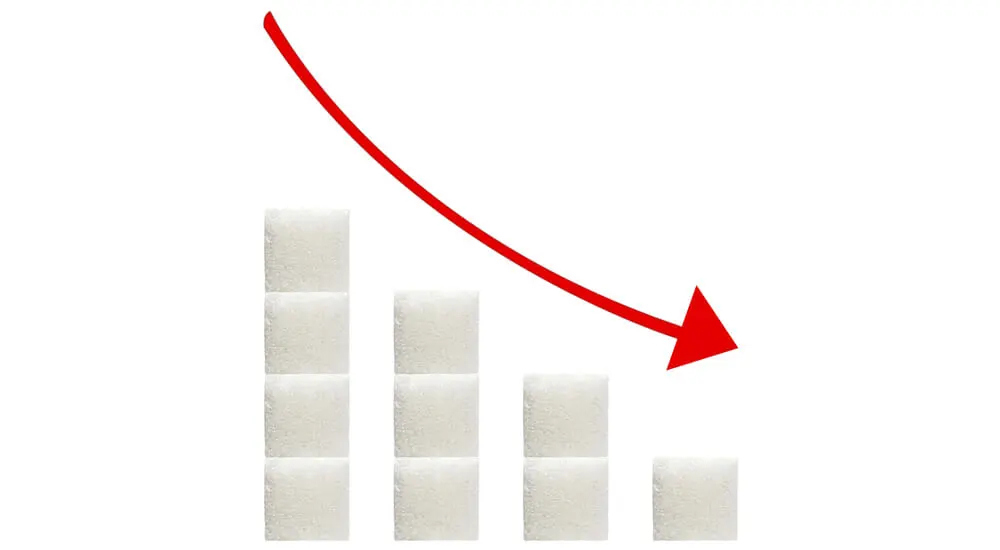
Reduce sugar consumption!
Sweeten naturally without sugar: birch sugar, Erythritol and Stevia
While Stevia is extracted from the South American plant rebaudiana, Erythritol and birch sugar (xylitol) are naturally occurring sugar alcohols. The latter, however, have no alcoholic effect. All three sweeteners can also be used in combination as excellent sugar substitutes.
What are the sweeteners Erythritol, Stevia and xylitol suitable for?
These sugar substitutes are not only excellent for weight reduction, but also for diabetics or people with fructose intolerance. Stevia and Erythritol in particular are suitable for weight loss because both substances have a calorie content of zero.
The three sugar substitutes are suitable for sweetening food and drinks as well as for baking.
There are major differences between the three sweeteners when it comes to their sweetening power. Birch sugar (xylitol) has both the same ratio and the same sweetening power as sugar. Stevia, on the other hand, is often enriched with sugary fillers or Erythritol because of its sweetening power, which is up to 450 times greater than sugar. It is important to pay attention to the ingredients when buying Stevia.
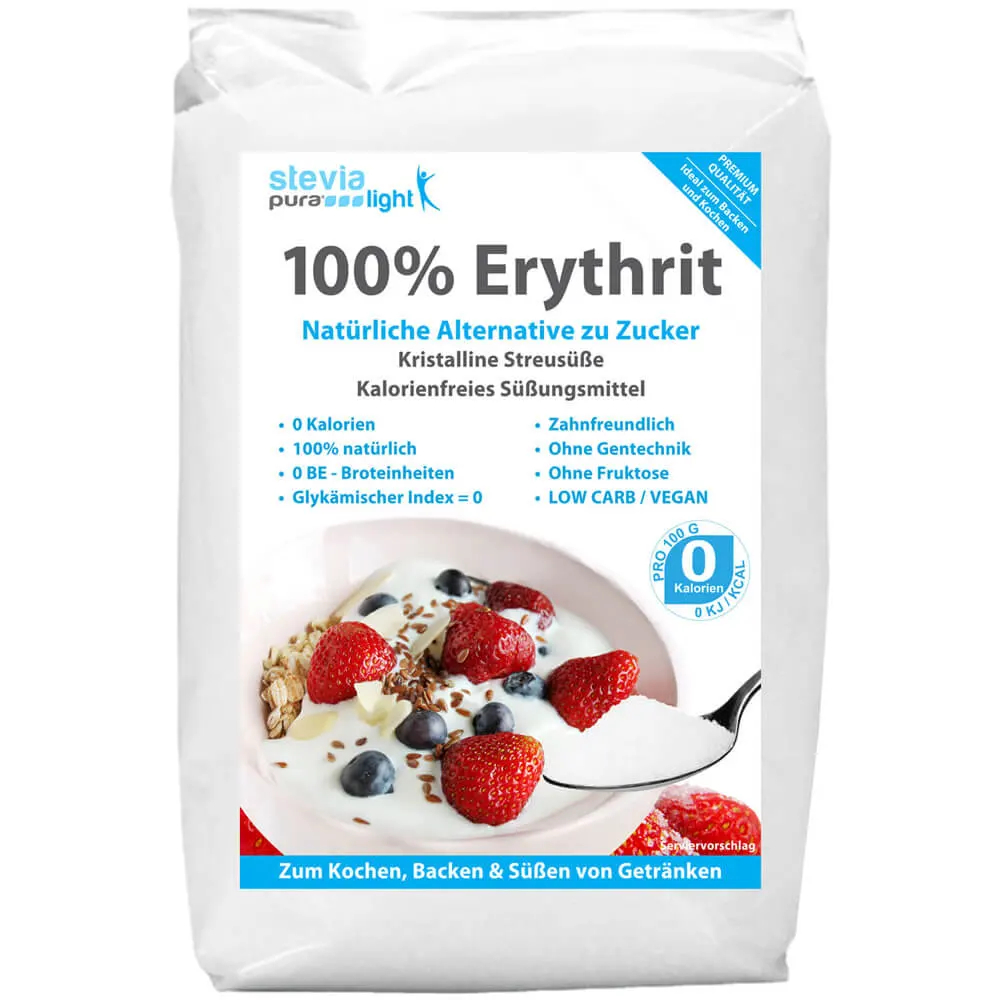
The sugar substitute Erythritol without additives
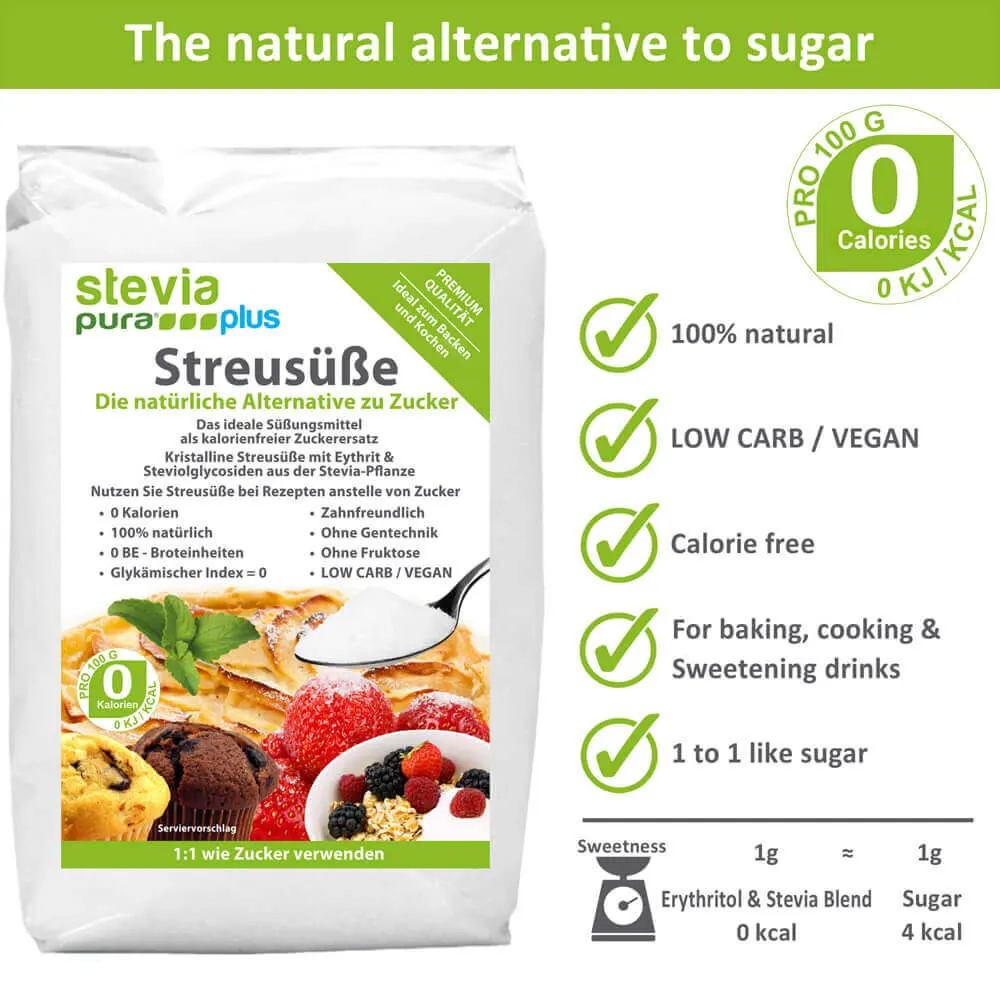
Sugar substitute Erythritol & Stevia Blend 1:1 like sugar
The advantages of the sugar substitute Stevia
Stevia is a plant native to South America from which the natural Stevia sweetener is extracted. The extracts have been approved in Europe since 2011. The pure Stevia extract does not cause tooth decay and has no calories. Since the approval, you can find many Stevia products and Stevia sweeteners on the supermarket shelves. Watch out! Pay attention to the ingredients! Many Stevia products are partly enriched with up to 98% sucrose and therefore not calorie-free.
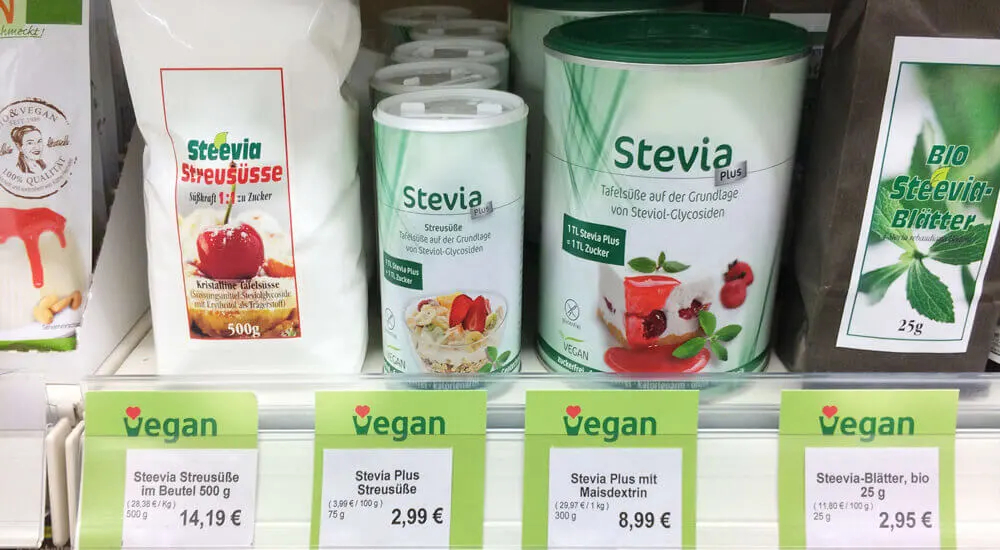
Stevia products in the supermarket
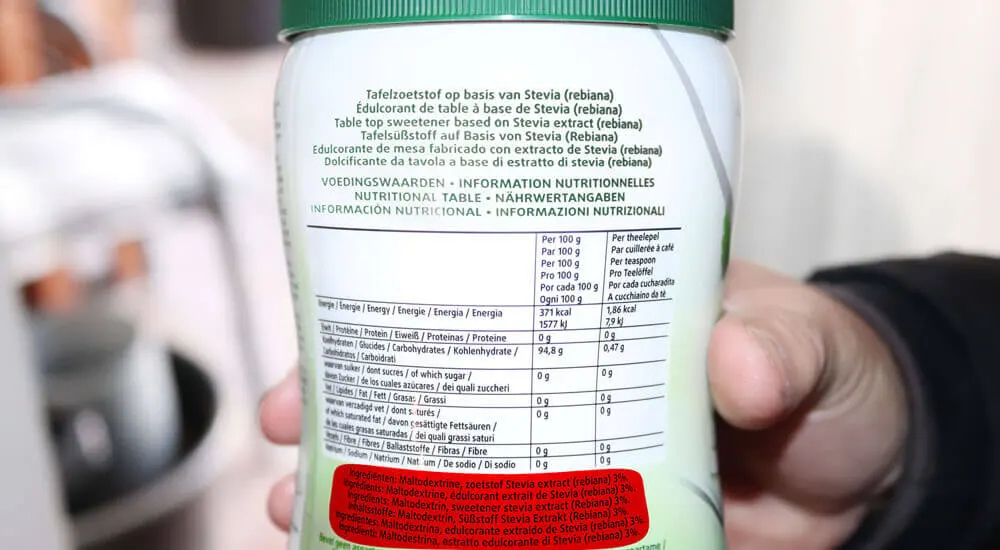
Stevia products with maltodextrin
Why are calories added to a calorie-free sugar substitute?
To mask the taste that comes from using low quality Stevia extract. But also, for cost reasons, as additives such as fructose, dextrose or maltodextrin are much cheaper than high-quality Stevia extracts. Therefore, always pay attention to the list of ingredients when buying pure Stevia.
The Stevia sweetener from the Stevia plant
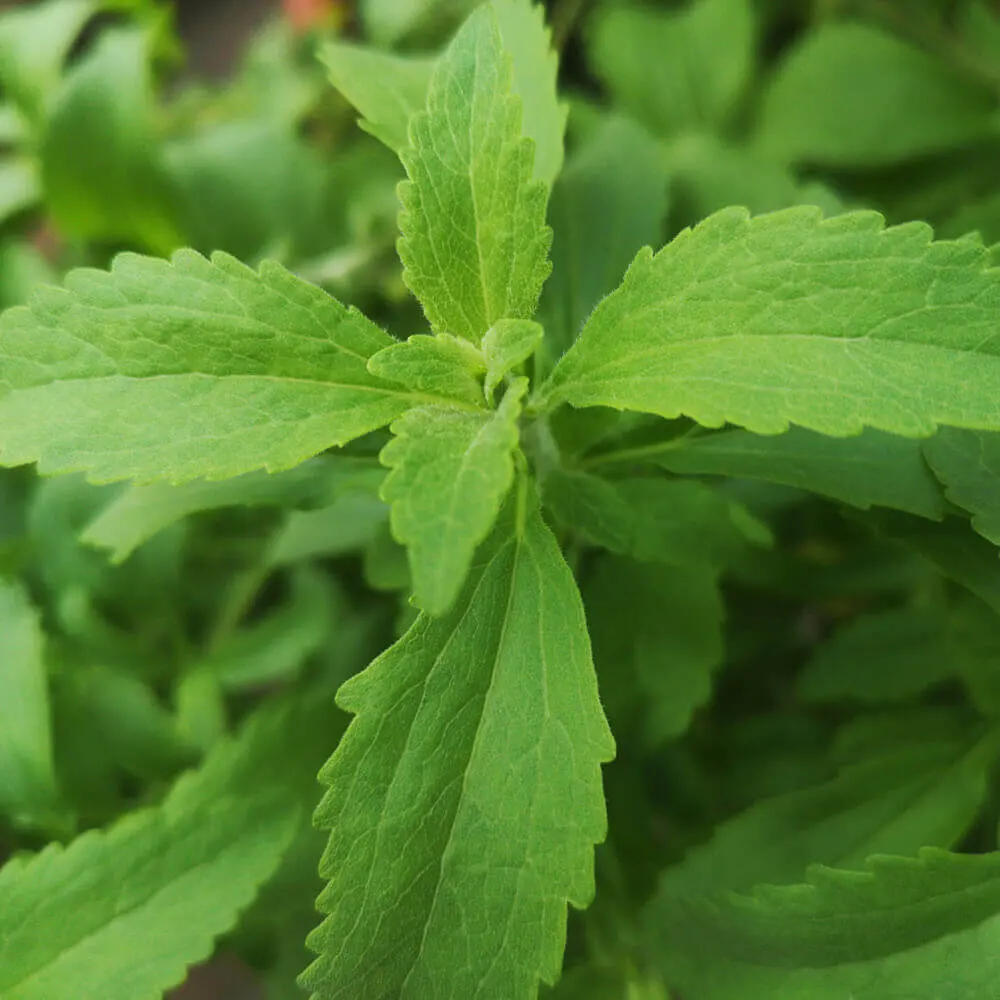
The Stevia plant
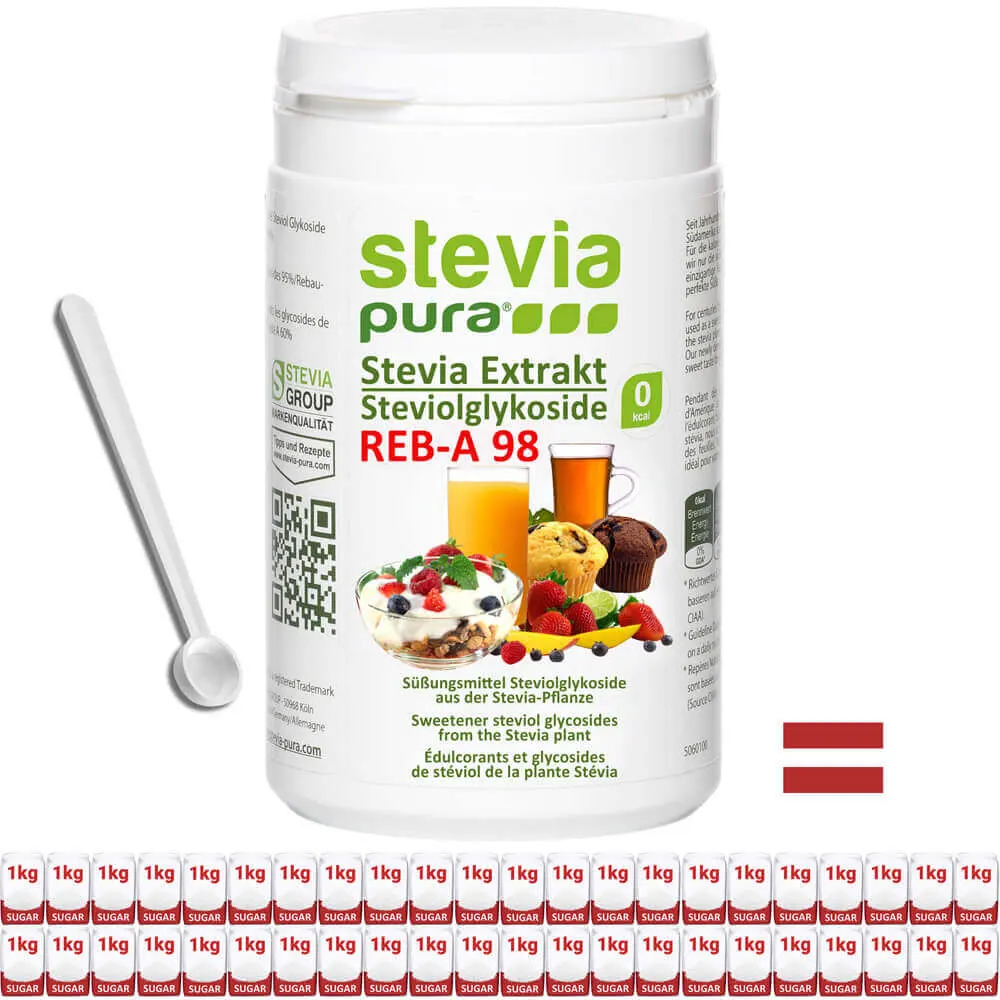
Pure Stevia Extract from the Stevia Plant
The sweet ingredients stevioside and rebaudioside A are extracted from the leaves of the sweet herb (Stevia). The sweetening power is up to 450 times higher than sugar. 1 gram of pure Stevia extract (Rebaudioside-A98%) is equivalent to approx. 450 grams of sugar.
This pure sweetener should be dosed very sparingly (mini-dosing spoon) because of its very high sweetening power. For baking, the necessary volume is often lacking. That is why Stevia sweeteners often have fillers added. Manufacturers often use fructose, maltodextrin (very high in calories) or other types of sugar.
Stevia products enriched with vegetable fibres or the calorie-free Erythritol, on the other hand, do not pose a problem.
Does Stevia have a bitter aftertaste?
The composition of the steviol glycosides is decisive for the taste. The stevioside has a slightly bitter aftertaste. Rebaudioside A has a sweet taste. Make sure that the rebaudioside A content of pure Stevia extract is between 60% and 98%. These are bitter-free and have a pleasant taste.
Buy pure Stevia online.
Stevia sweeteners can be bought in good quality as Stevia sweetener tablets, dried Stevia leaves, Stevia powder and spoonable sweetener online at Stevia-pura.
How to dose Stevia powder or Stevia liquid correctly.
Follow the principle: less is more and dose carefully.
Stevia liquid (fluid) is highly concentrated, two drops correspond to one teaspoon of sugar. The sweetening power of a 150 ml bottle is equivalent to about 2.5 kilos of sugar.
One Stevia sweetener tablet is equivalent to the sweetening power of about 5 grams of sugar.
To sweeten a cup of tea with Stevia powder (pure Stevia extract Reb-A98%) with a purity level of 95%, you only need 1/4 of a Stevia Mini dosing spoon. 1 teaspoon (5) has the sweetening power of approx. 2.25kg of sugar.
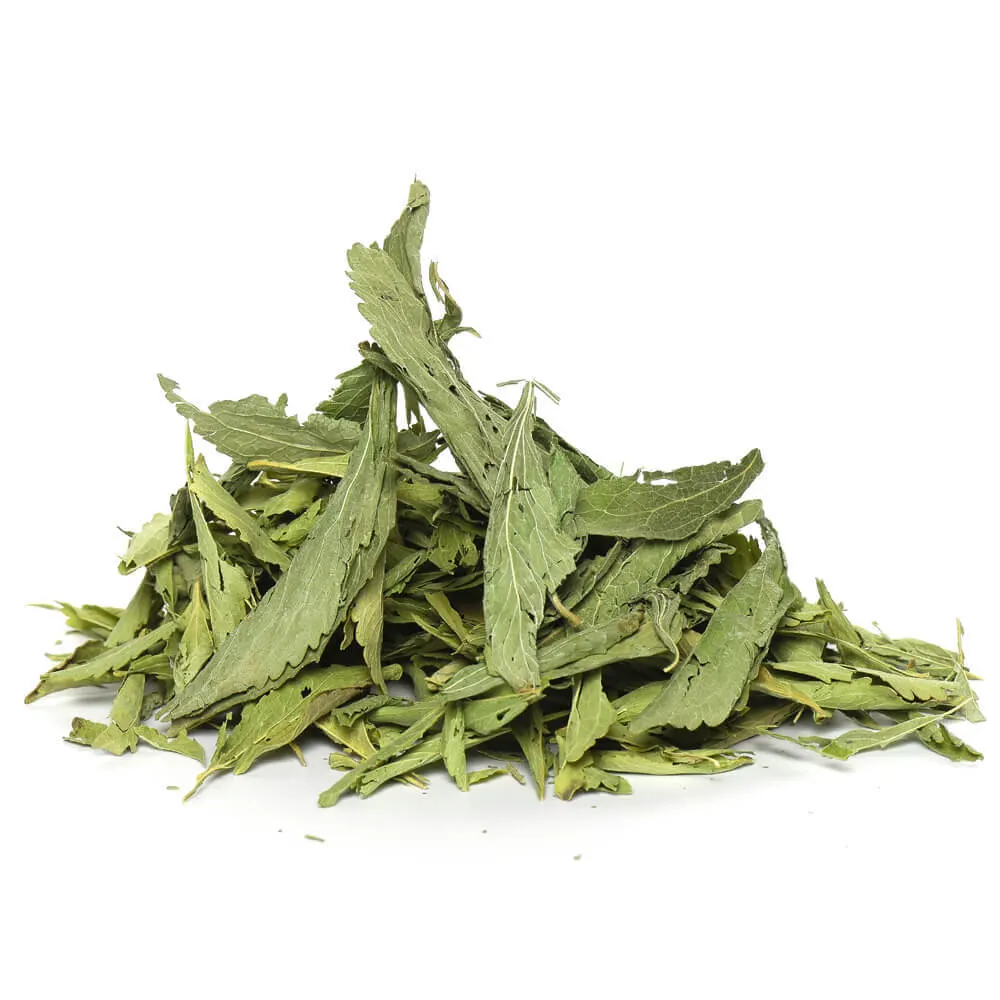
Dried Stevia leaves of the Stevia plant
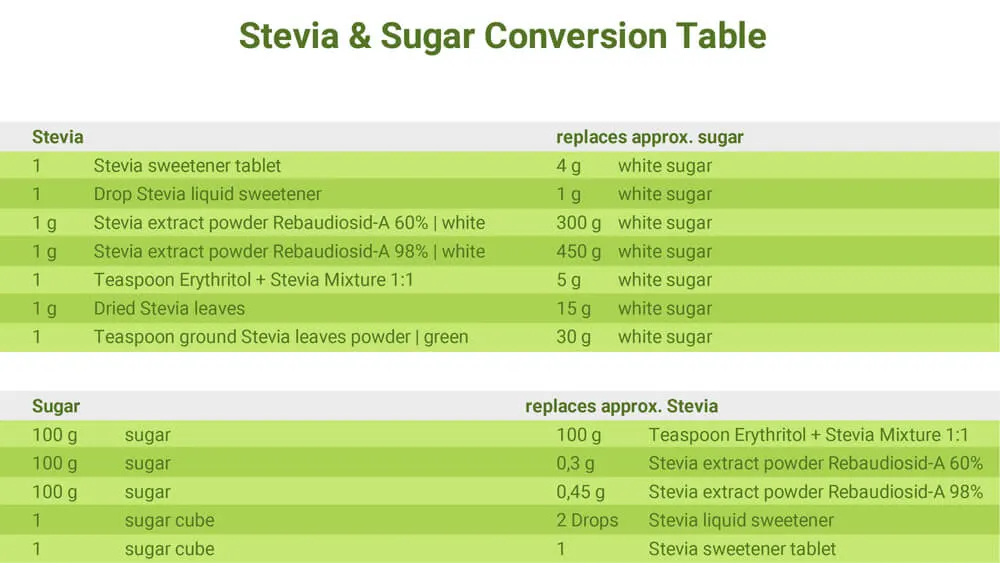

 German
German Dutch
Dutch French
French Italian
Italian Portuguese
Portuguese Spanish
Spanish
